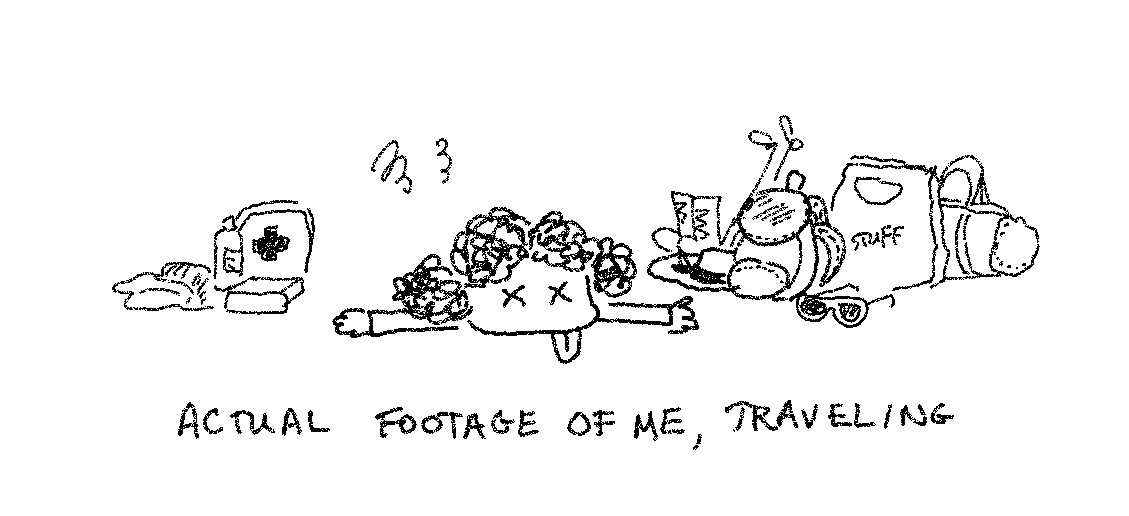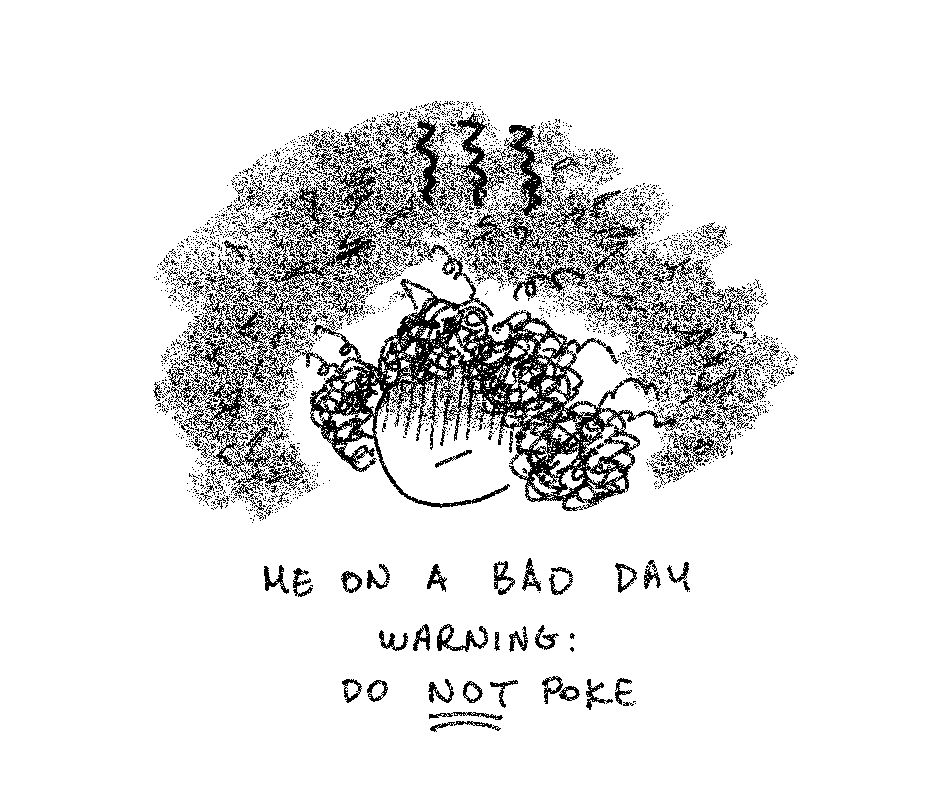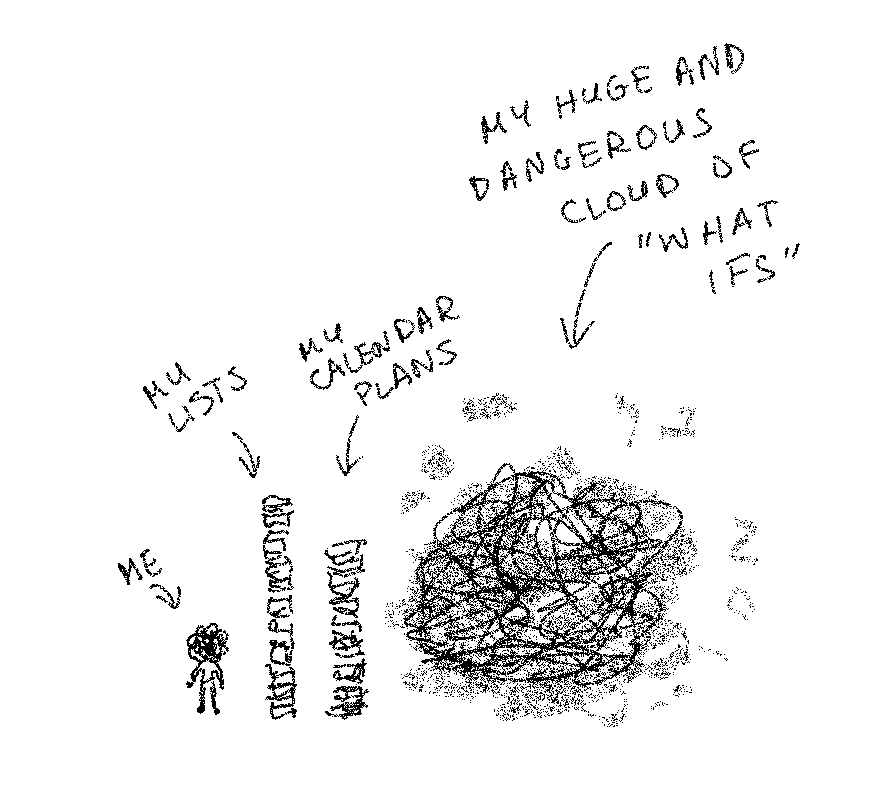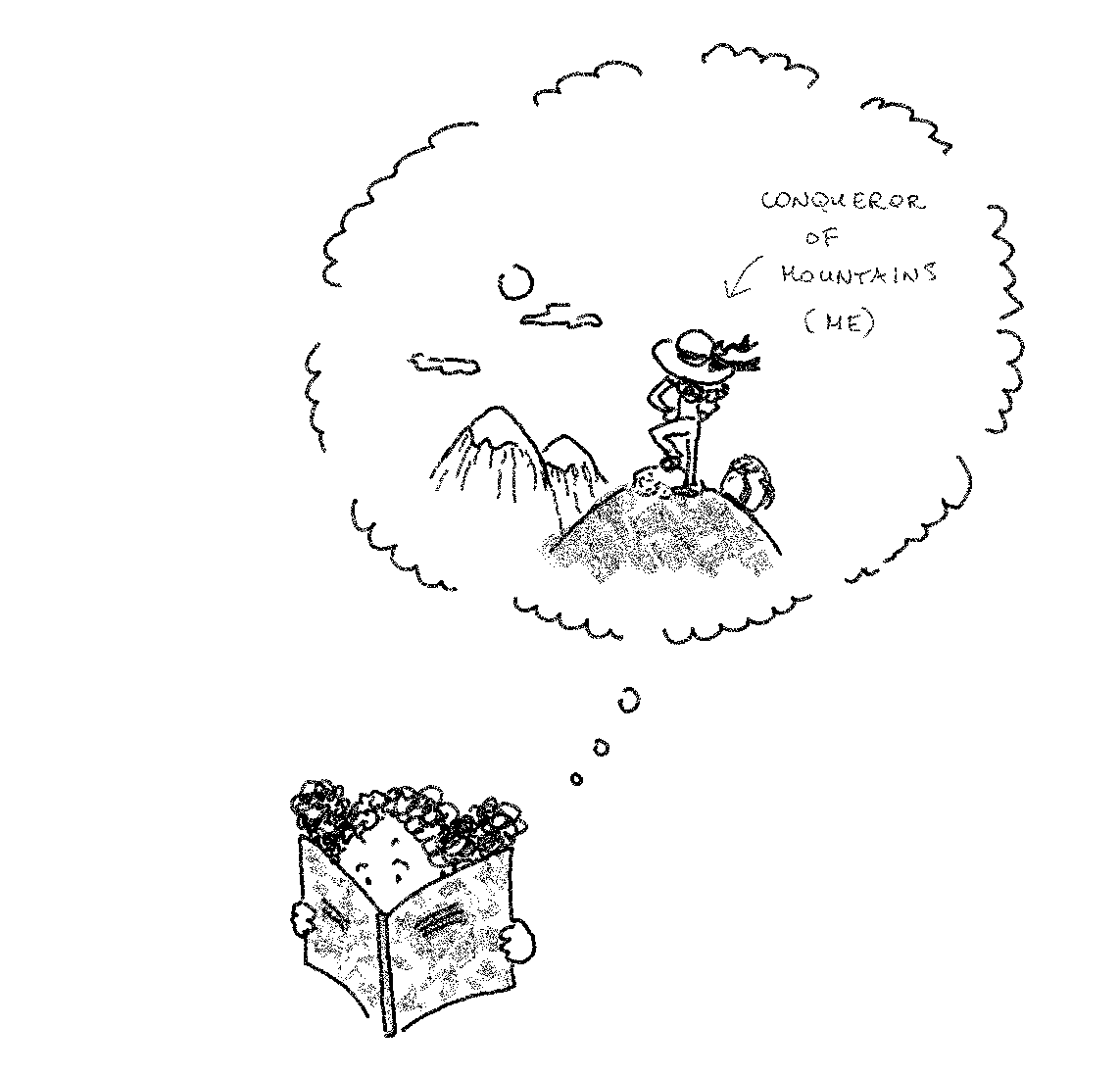I finished Walking to the End of the World several weeks ago, but I am still feeling a reading hangover, so to say – I still wish I was reading it. I keep catching myself stuck in how I imagined the places the book talked about the the way it made me feel. It’s like I almost went there myself. If that’s not proof of a great book, I don’t know what is.
I picked it up over a recommendation by a friend, and also because I had previously read another pilgrimage book that I greatly enjoyed (in fact, I have a post about the book and anxiety right here, and it’s funny enough that even the names of the books are very similar!) What appealed to me about Walking to the End of the World was that the author is so much like me: a worrier and an over-planner – I felt an instant connection to the book.
What makes a person with a completely sedentary lifestyle attempt something as extreme as two or three months on your feet in a climate you don’t know, in places where nobody can (or won’t) even speak your language, and neither can you speak theirs? Walking to the End of the World is a detailed account of the pilgrimage, but it didn’t bore me – instead, I felt as if I was walking along with the author and her husband.
Check out on Goodreads
★★★★☆ 4 stars
![]()
Walking to the End of the World is a travel memoir – particularly one of the author, Beth Jusino, and her husband walking the full length of the French trail of Camino de Santiago. There are many ways to write a book about a pilgrimage – it can be a list of places you should visit, it can also be about what’s good and what’s bad and what you should plan for. But for me, the best travel memoirs are those that put me in the shoes of the person going there, and this is exactly what Walking to the End of the World does. Beth Jusino simply lays out all of her pilgrimage days in front of you, talks through the feelings and experiences she had, and the conclusions she drew. It’s very simplistic – but it’s also very immersive. After a few dozens of pages, you feel as if you’re walking there with her. (I swear, I even started feeling the foot aches.) Books like this one are the best way to travel without actually leaving your room.
Living In Constant Fear Of Missing Out
It was so liberating to read Walking to the End of the World. Because, see, I am no happy sunshiny traveler. Although I could be considered healthy, my body leans towards the spoonie type (the fact that you don’t have a diagnosis doesn’t always mean strapping health). I was never the strongest individual out there – while my friends don’t even get a headache the next morning after having had bottles upon bottles of alcohol, I can wake crippled by a migraine and muscle pain even despite not having had a drink during the party at all. My body just decides to do those things. Coupled with my anxiety prone character, travel can be hard.
Especially when you travel with people. People who you feel are often the very definition of health and youth, compared to you. And even morning people, to top it off. Seeing them perky when you feel sick just opening your eyes on the second day of the trip makes you furious at them, your own body and this very idea you even had to come here. Doesn’t help that they often like ‘playfully’ poking fun at you for being ‘down under the weather’, as if it’s your fault for your body just basically not showing up there that way. Few of them can understand how you’re feeling. They think you’re a cranky little kid and they’ll do everything they can to let you know that it’s clearly not that bad and you should just grow up.

A pencil illustration with the caption: actual footage of me, traveling. It’s me, lying on the ground looking pretty dead with all sorts of traveling supplies around me
So why was it liberating to read this? Because apparently I’m not the only one who feels like this. Who feels angry all the time during a trip, despite the pressure that you should apparently be “YOLOing”. It’s so good to know I’m not the only one.
I should have to mention though that most of these trips I took was with my choir. Which means, awful accommodations and living with university students when your’e pushing 30 yourself, and never been one to boast great stamina. If you want my advice? Don’t take trips like that xD not only are they physically exhausting and not very enjoyable, they are also emotionally crushing. Because you’re not really supposed to be as physically resilient at 30 as a bunch of 18 year olds. But you feel like you should. And they feel like you should. So not only will you beat yourself up for “being a loser”, but they will also grate you for being a spoilsport and not participating in their wine drinking until 4am, leaving just two hours of sleep. I’ll talk to you guys about that in ten more years. There’s a reason the university dorm life doesn’t stick. And this brings me to…
The Anger Behind The YOLO / FOMO Culture
I could relate so well to the anger the author felt constantly on the trail. And I can respect the author so much for admitting it and writing about it. After all, we aren’t supposed to feel any sort of negative emotions while traveling, are we? And not just while traveling. White parenting. while dating. While shopping even.
You’re only ever supposed to feel blissful when YOLOing.
Blessed. Sublime. Perfect. Am I right or am I right?
I’ll bet brides feel guilty for feeling angry or anxious during their wedding day. Cause your’e supposed to be happy. White parenting, you’re supposed to be able to handle everything efficiently and with a smile. And while walking a pilgrimage, you’re supposed to feel profound emotions. Not anger.
Feeling anger in the wrong place won’t just make you feel guilty and like a loser. It will make others judge you. Which is why I respect the author so much for writing about it so openly. It feels so good that its not just me feeling these “inappropriate” emotions. It’s sad to think you’re the only one struggling with your short fuse. And let me tell you, short fuses are mostly genetic and chemical. Please don’t judge people who have it. They might struggle much harder than you do to calm themselves down. Of course, its not justifiable to lash out at anyone, but please be patient if a tired person is snapping at you. Most of the time, that means they’re in the edge of their brains exploding with hormones and chemicals and doing their best to keep their heart rate down.

A pencil illustration of me on a bad way with a warning: do not poke. It’s a darkened face with disheveled curly hair and a dark cloud around the head
You're not supposed to feel anger when YOLOing: and finally, a #travelbook that doesn't hide the negative emotions. Walking to the End of the World is a wonderful Camino de Santiago pilgrimage memoir: Click To Tweet
But there’s another reason apart from the short fuse that I could connect to very strongly. And I think those two are related as well. It was the author’s need to plan things out and be prepared for anything – it’s a trait I painfully recognize in myself too. Its certainly not an easy trait to live with, and it’s one such trips and experiences challenge a lot. It was incredibly interesting to see now waking the Camino de Santiago affected the authors need to always have things in control. And I often wondered about how I would have responded to those situations myself.

A pencil illustration of me next to a stack of my lists (two times taller than me), a stack of my calendar plans (only a bit smaller than the lists) and my huge and dangerous black cloud of ‘what ifs’
Books About Travel Enable You To… Sort Of Travel Too
I don’t really travel myself, but reading this made me realize that I should probably read more travel memoirs. If you can’t travel much for whatever reason, why not read a book about it? And the strange thing is, while reading it, I was also feeling almost as if I was there, walking along with the author. The funny thing is that during the day, I would have ever so many errands while reading this, so I would spend it on my feet and end up in bed in the evening with sore feet and an aching back. And when l’d start reading, I would feel almost like I was there with the author herself. But I believe it’s also the way she tells the story – it’s linear and simple, like a diary almost, but you also end up feeling like you’re there too.

A pencil illustration of me reading a book and picturing myself on a trip, as conqueror of the mountains

This was a great experience. Although I wouldn’t call the book rosy or too positive at all, it leaves you with a good, warm vibe. For the author, walking the Camino was a learning, improving experience. She says that walking it is a different experience to everyone altogether. As it is with any meaningful one – we all see it differently, and we walk away with different lessons learnt.
I was happy to read Walking to the End of the World, and I feel like it also taught me many things, although just like walking the Camino for the author, my experience can’t be summed up into easy bite-sized takeaways. Which is probably accurate for a Camino memoir! I can definitely recommend it, although I have to mention that this probably isn’t that motivational Camino memoir, if you’re looking for one. No, what this is, is a long, hard look into the self, trying to figure out yourself and your connection to the world. And that’s something I think I’ll always enjoy reading.
Walking to the End of the World by @bethjusino is a long, hard look into the self, trying to figure out yourself and your connection to the world. It was a great experience! Here's the full review: Click To TweetBut Beware Of The Triggers
Well, yes. This is a memoir of walking for months. So there will be blisters and traumas. But more than that, there will be emotional turmoil, loneliness, some danger and just all sorts of feelings that are stronger than what you usually experience every day. However, I wouldn’t say the book is majorly triggering. It’s pretty calm.
Other Books You Might Like
I’ve only read one more book about walking the Camino (and a few other places), and it was brilliant. It talked a lot about emotions as well, although it was mostly concentrated on anxiety and that’s why it spoke to me a lot. Do read the review here. And definitely read this book too.
I thank Mountaineers Books for giving me a free copy of the ebook in exchange to my honest opinion. Receiving the book for free does not affect my opinion.
Do you read travel memoirs? Or maybe you just travel yourself? What do you think of this whole YOLO / FOMO thing?
I’m Evelina and I blog about books that made an impression on me. I love middle grade, women’s, scifi and some literary too.


